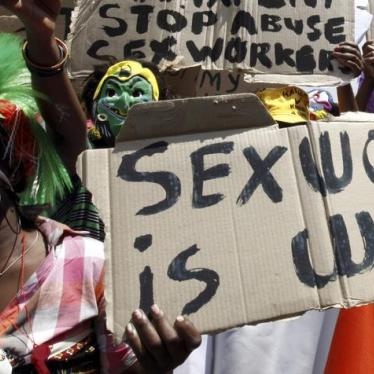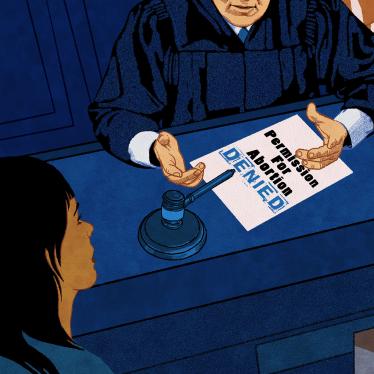Want to fight for the rights of sex workers? Hang on—in the United States it could now land you in jail or subject you to serious damages.
A vaguely defined US law – the Fight Online Sex Trafficking Act (FOSTA) – raises the possibility that if you advocate online for the rights of sex workers or defend their most basic freedoms, you might be prosecuted by federal or state government, or sued by private parties.
That’s why we at Human Rights Watch filed the first lawsuit against FOSTA this week, along with the Woodhull Freedom Foundation, the Internet Archive, an activist for sex workers’ rights, and a licensed massage therapist. We are proud to be represented in this effort by the Electronic Frontier Foundation and Davis Wright Tremaine LLP.
Sex work is based on adult consensual agreement. Sex trafficking is a horrific crime (as we’ve also documented). If you understand the difference between choosing and being forced, you can grasp the distinction.
But fuzzy laws spread fuzzy fear. FOSTA says third parties can’t post content that promotes or facilitates prostitution but doesn’t define what it means by “promote” or “facilitate.” Fear of prosecution may prompt websites not to share our research findings, or individuals not to share our advocacy on social media. That gets in the way of our work, and the work of all who try to defend the rights of sex workers.
As we have documented in the U.S. in China, Tanzania and South Africa, criminalization leads to horrible abuses including police rape, police corruption and women being unable to report crimes – including sex trafficking – because they fear arrest. Criminalization also obstructs access to healthcare. In South Africa, healthcare access for sex workers has improved, thanks to determined efforts by many advocates and well-funded programs to end the HIV/AIDs pandemic, even while arrests of sex workers continue. but it’s taken action, training, and lots of communication and campaigns. This is all the kind of work that needs a free space for facts and advocacy, including on the Internet.
FOSTA restricts sex workers’ freedom of expression and endangers them. It should be scrapped for several good reasons. But one is that it might stop you from doing something you might believe you have the constitutional right to do: help protect the rights of some of the most marginalized people on our planet.











